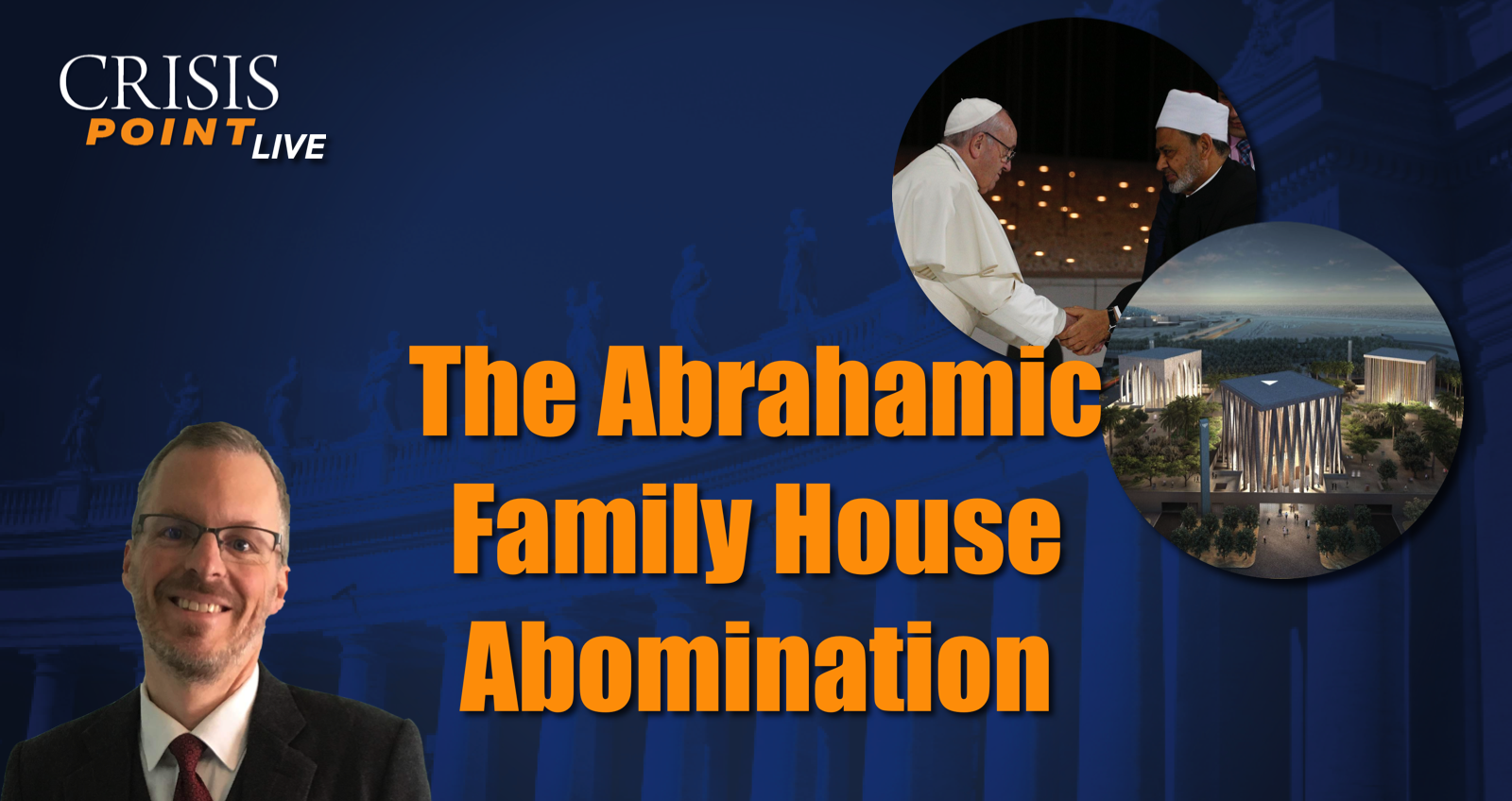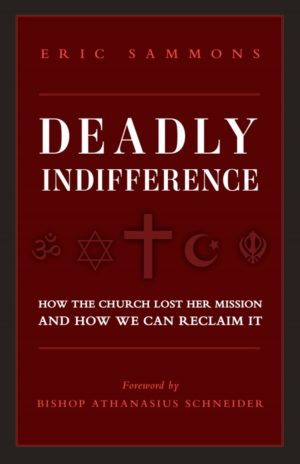|
Getting your Trinity Audio player ready...
|
Today the “Abrahamic Family House” in Abu Dhabi, UAE opens for visitors. This multi-religious site hosts a mosque, synagogue, and a church, and was created as a result of the Document on Human Fraternity for World Peace and Living Together, co-authored by Pope Francis and prominent Sunni Islamic leader Sheikh Ahmed el-Tayeb, Grand Imam of Al-Azhar. As the Abrahamic Family House opens, it is instructive to look back at a few of the fundamental problems with its founding document. Below is an excerpt adapted from my book, Deadly Indifference: How the Church Lost Her Mission and How We Can Reclaim It.
Since the terrorist attacks of September 11, 2001, interreligious dialogue between Catholics and Muslims has explored ways to prevent religiously-inspired violence. Many local and national interreligious groups have released joint statements condemning violence and promoting dialogue as a means to peace. In February 2019 the pope himself also released such a statement, co-authored by Sheikh Ahmed el-Tayeb, Grand Imam of Al-Azhar.
Titled A Document on Human Fraternity for World Peace and Living Together, the text urged “all persons who have faith in God and faith in human fraternity to unite and work together so that [this document] may serve as a guide for future generations to advance a culture of mutual respect in the awareness of the great divine grace that makes all human beings brothers and sisters.”1 Signed in Abu Dhabi, the capital of the United Arab Emirates, this statement is often called the “Abu Dhabi Declaration.”
In many ways, the Abu Dhabi Declaration is a standard-fare interreligious dialogue statement in keeping with all interreligious documents produced in the wake of Vatican II. Pope Francis said, “I openly reaffirm this: from the Catholic point of view the Declaration does not move one millimetre away from the Second Vatican Council,”2 and while some might say that is an exaggeration, the document does contain typical interreligious dialogue language found in the Vatican II documents and that has been commonly used since then. For example, the desire to foster “mutual respect” has been a frequent theme of these statements since the 1960s, and it’s front and center in the Abu Dhabi Declaration.
Orthodox. Faithful. Free.
Sign up to get Crisis articles delivered to your inbox daily
But the Abu Dhabi Declaration goes a step further.
Related Podcast:
The Abrahamic Family House Abomination
Early on in the declaration, the pope and the sheikh state that “In the name of God . . . [we] declare the adoption of a culture of dialogue as the path; mutual cooperation as the code of conduct; reciprocal understanding as the method and standard.” Does anything there catch your eye? If the pope and sheikh state together that they write “in the name of God,” then they imply that they believe in the same God . . . and their God has the same name. Yet Catholics believe that the “name” of God is “the Father, the Son, and the Holy Spirit” (cf. Matt. 28:19); i.e., the Holy Trinity, a teaching that Islam emphatically rejects. Catholics and Muslims making a joint statement “in the name of God” suggests that there is no fundamental difference between the two religions as to the “name” of God. If the pope and sheikh state together that they write “in the name of God,” then they imply that they believe in the same God . . . and their God has the same name.Tweet This
In addition, the Abu Dhabi Declaration treats “religion” as a single phenomenon. The modern world does indeed lump all religions into a single category: “religion.” We see this whenever someone commits a crime in the name of his religion; many pundits then decry the impact of “religion” on the susceptible, without any regard to the specifics of any one religion.
Yet the Catholic Church has historically (and understandably) seen Catholicism as the only true religion, with all other religions containing at least some fundamental falsehoods. Yes, some religions share certain beliefs and practices with others, but religions are too fundamentally different to accurately classify them all under one heading. Thus, a single category of “religion” that includes both Catholicism and all other religions does not align with the historic Catholic view of the world.
The Abu Dhabi Declaration states that “among the most important causes of the crises of the modern world” are “a distancing from religious values,” and then later makes a blanket condemnation of “religious extremism.” Further, the document goes on to “affirm … the importance of awakening religious awareness” as a means to “confront tendencies that are individualistic, selfish, conflicting, and also address radicalism and blind extremism in all its forms and expressions.”
By this author:
-
Deadly IndifferenceProduct on sale$9.95 – $10.00
In these statements we see an equalization of religions, a problem that has plagued interreligious dialogue since the beginning. What are “religious values”? Does this mean the values of all religions are the same? If so, how does, for example, the Catholic view of women co-exist as an equal value with the Muslim view of women? What does it mean that “religious extremism” is bad? Does this mean a Catholic “extremist” like Mother Teresa equates with an Islamic extremist like Osama bin Laden? And what is “religious awareness”? If a person becomes “more aware” of the religion of Satanism, is this a way to confront selfish tendencies, as the text suggests?
By conflating all religions the pope and the sheikh endorse religious indifference. All religions are equally valuable, so what’s the point of preferring one over the other?
[Photo Credit: Vatican Media/CNA]
- Pope Francis and Sheikh Ahmed el-Tayeb, A Document on Human Fraternity for World Peace and Living Together, February 4, 2019, emphasis in original. All succeeding quotes from this document will not be footnoted, as there are no paragraph numbers within the text.
- Pope Francis, Press Conference on the Return Flight from Abu Dhabi to Rome, February 5, 2019.


